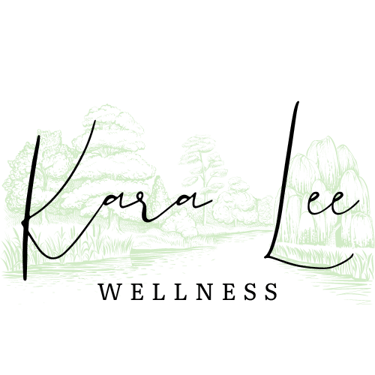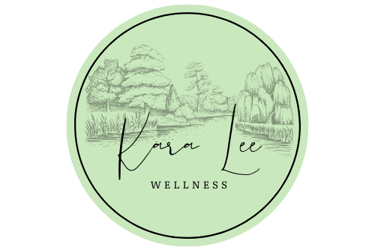Why I Don't Recommend Avoiding Meat
Should you eat meat or avoid it? Tackling your questions regarding meat consumption and why it might be more beneficial than you think.
MEAT PART OF A HEALTHY DIETHEALTH AND WELLNESSBALANCED DIET


The burning question should you eat meat or not eat meat???
Meat has gotten a lot of flack in the years past stating it is terrible for your heart, it fuels cancer, and has too much fat and is poor quality. (When I say meat I am referring to all meat including fish.) Many people even state feeling better once they stop eating meat. Magazines and Instagram posts share the many reasons to avoid meat and how you are better off on a strictly plant based diet. So what should you do? What is best for you?
What I hope to show you is provide you with balanced information and for you to be able to determine what is best for you. Nothing is the same for everyone, but if you couldn't tell from the title I am not one to recommend avoiding meat. Many reasons fuel this decision including the first one is that in the 80s we started seeing statements of how fat was bad and we needed low fat everything. We also started seeing people say don't eat red meat, because fat and red meat was making us sick and fat. Many of these claims/studies have been found to be biased, not accurate, and were funded by companies who wanted to have a say in the food market.
Why am I pro meat? Meat provides countless nutrients that you cannot actually get from plants. Iron is a prime example. Animal protein contains heme iron which is more readily absorbed in the body. Plants contain non-heme iron which is not readily absorbed and you would have to eat a lot more of it to get remotely close to the same levels. Meat contains more complete proteins where plants contain partial proteins and you would have to eat more at the same time to get closer to complete proteins. Meat also contains proteins and fats in beneficial ratios to help balance that blood sugar. I always recommend not having "naked carbs" which means don't eat carbohydrates by themselves. Meat provides an easy protein and fat to the mix.
The protein from animal protein also has many healing properties since protein is so important for bodily functions and for repair. You also need protein to help produce energy and to promote balanced weight. In regards to protein products like powders, bars, etc. there are normally so many additives and unnecessary ingredients that you are getting along with it, that it doesn't make it worth it in the end. (I have a few products I think are good, but there aren't many.)
So why do people state that they feel better when they stop eating meat? There can be many reasons for this a few are, they didn't have appropriate stomach acid and or have gut dysbiosis making it difficult to break down meat. They could be consuming low-quality meats. (I will address this in a little bit.) The way they could be preparing the meats is either not safe or is adding many other ingredients like inflammatory oils or seasonings and using methods like deep frying that are obviously less beneficial. A rare one is if you have Alpha Gal Syndrome from a specific type of tick that can actually cause an allergy to meat. I assume most of you reading this don't have this last one.
Once people go off of meat and start feeling better many times you will start to see a decline in many other areas as time goes on since the body is better sustained with animal proteins. You see a change in hair and nail quality, increased dental issues, more brain fog/fatigue, lowered vitamin/mineral status, decreased energy, unable to heal as readily, and more. They start out subtle, but will cause depletion and issues as time goes on. You also are fighting the overabundance of oxalates in many vegetables and some fruits that can cause gut issues and increased inflammation in the body, by eating mostly plant based.
What is the bottom line then? What do you do? My recommendations to have a well rounded diet that includes meat is:
Heal your gut. If you don't have appropriate stomach acid, tight junctions in the lining of the intestines and more it will be harder to digest meat. (It is not the meats fault)
Get good quality meat. There is not doubt our food sources have become more questionable as we try to feed more people quickly. Focusing on local pasture raised meats is ideal. Limit processed meats.
Practice safe/healthier cooking of meats. Eating raw meats increases your risk of parasites and bacteria so choose to bake, broil, or use the stovetop is always best. Skip the deep frying and using oils and seasonings that increase inflammation.
Chew your food. Again if you don't chew your food it makes your body have to work harder. (Digestive bitters can be helpful as well.)
Limiting meats for a time is sometimes what is needed in extreme situations for people who need to heal. But it is never a long term solution I recommend, so this is why I focus on step 1 and try to slowly reintroduce after supporting the gut.
Keep it simple. Eat good quality meats with fruits, vegetables, complex carbohydrates with a variety of whole foods and you will do well. The amount of meat/protein recommended depends on life stage. If you ever wanted to see how much protein you would need or if you are eating enough, I would be more than happy to chat with you and see what you need! FREE CONSULT
If you want to dig into more research here is a link for that. :) https://www.ncbi.nlm.nih.gov/pmc/articles/PMC9318327/
Lily Nichols, RDN is someone I highly trust in the realm of quality research. She has many blog posts about protein especially for pregnancy. https://lilynicholsrdn.com/blog/page/3/


